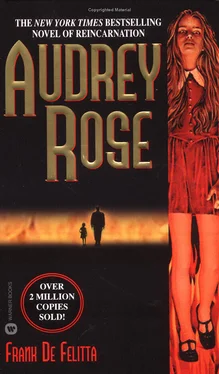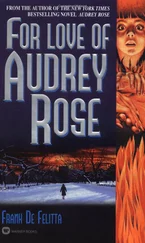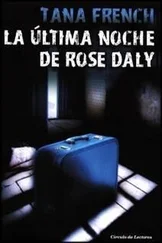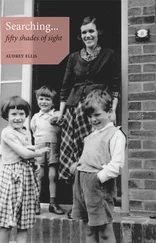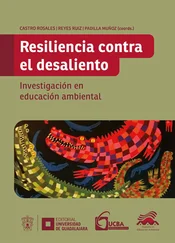They made love on the rug, unsatisfactorily, then ate in silence and went to bed.
Bill feel asleep before Janice.
At three o’clock in the afternoon of that same day Brice Mack, laden down with hat, overcoat, and bulging briefcase, left the interviewing room and began to walk down the long Spartan corridor toward the elevators. His gait was sluggish as his head was aching, and the glaring fluorescents reflecting hot and bright off the enameled walls hurt his eyes. His underclothing clung damply to his skin, and his face felt clammy and feverish. He was suffering all the usual symptoms of another claustrophobic bout with Hoover; only this time, instead of dissipating, the symptoms seemed to linger and escalate. He smiled wanly and reflected on what his blood pressure must be at this moment and decided he wouldn’t care to know.
The meeting had been a normal one—predictable and totally bizarre. He knew in advance there would be no way to make his client understand the direness of their situation, that they were down to the wire and would lose the case unless they acted with boldness and daring.
“You don’t seem to understand,” insisted Mack anxiously. “There’s nobody left. By the time Professor Ahmanson finds a replacement for Hancock, it’ll be too late—unless we bring in Marion Worthman as a stopgap. I can keep her going for days.”
Hoover’s eyes narrowed to cynical slits, minutely studying the perspiring attorney.
“Don’t worry so much, lawyer,” he said imperiously, then added cryptically, “this case won’t be won by Mrs. Worthman’s presence, nor will it be lost by her absence. Whether you believe it or not, the verdict is already in. It was written long before you entered the case.”
The remark had literally flabbergasted Brice Mack. For a moment he thought he would burst out laughing. It could not be said that life till now with Elliot Hoover had been entirely logical or sane, but this—this was pure, unadulterated, looney-bin talk.
“I wouldn’t know about that, Mr. Hoover,” Mack had replied. “I don’t try my cases with a crystal ball. I’m forced to rely on the plain, ordinary, everyday methods prescribed by Sir William Blackstone.”
Hoover was neither impressed nor offended by the remark and, seeming to dismiss it entirely, hunched forward across the table with an arch smile and softly confided to Mack, “A great man once said, ‘Coincidence, traced back far enough, becomes the inevitable.’ What happened today, for example, the gross and shameful degradation of a saint; the sudden illness of a key witness—these were not simply arbitrary occurrences, but necessary steps in a larger and infinitely complex movement of events that will inevitably lead to a predetermined conclusion, the nature of which will ultimately be revealed to us in its own good time. There is nothing you or I can do to alter its course. It is clear to me now that the case you so carefully planned and structured was always doomed to fail. In other words, you have tried to manipulate the unmanipulatable. Goaded on by personal ambition, you have tinkered with the workings of a force far beyond the scope of your knowledge and have been soundly repudiated. There is no further need for you to ponder, plan, or toil in my behalf. All matters will attend to themselves, so just sit back and relax. The machine purrs smoothly under its own management. Even now, as we sit and chat, forces are aligning themselves to feed its forward momentum and bring about those events and those people who will bear witness to my innocence and render justice in my behalf.”
A wacky, though comforting philosophy, Mack reflected while waiting for the elevator to arrive. Yes, a comforting philosophy until one pinned it down to just who “those people” were. It sure as hell wouldn’t be the Templetons, even allowing Hoover’s boy scout faith in the basic honesty and integrity of Janice Templeton. Nor would his salvation descend on him like a bolt of lightning from a smiling sky. The attorney found himself chuckling. Miracles yet! If such things were possible, who’d need lawyers? Sit back and relax, he’d said. Sure, in the poorhouse, because they’d all be out of jobs.
While at the time these thoughts were simply an exercise in frustration, they would remain in the lawyer’s memory the rest of his life, for just as one elevator arrived, so did a second one, discharging Reggie Brennigan. Later Mack would puzzle deeply over the coincidence of the two cars arriving at precisely the same time and of the detective stepping out of one just as he stepped into the other, each failing to see the other until Mack turned and caught a fleeting glimpse of frayed coat collar, stained and battered hat, and thick red neck through the closing slit of his elevator door. Later he would ponder over the split-second decision to thrust his arm through the narrowing breach.
“Ah! There you are, me, boy.” The old cop exuded a stale, winy breath into Mack’s face.
“Where the hell’ve you been?” the lawyer grumbled in distaste and nausea.
“Places,” wheezed Brennigan with a sly grin, and tapped his coat pocket significantly. Then, pointing toward the men’s room at the end of the corridor, he added, “Shall we step into the presidential suite?” His pale and watery eyes attempted a twinkle and failed.
A few minutes later Mack found himself inside a toilet booth behind a locked door, reluctantly sitting on the commode with his trousers lowered, all at Brennigan’s insistence, “for the sake of appearances, you know …” The detective occupied the adjoining booth, sitting similarly, and only after carefully judging that the coast was clear, did he slip his find to Brice Mack through the space at the bottom of the separating wall.
The several dozen photo blow-ups were of such poor quality that the lawyer could hardly make them out in the poorly lit stall. They were photographs of documents, to be sure, written in a quick, scratchy hand that, under the best of circumstances, would have been difficult to read. Riffling through the batch, Mack paused at one and felt his heart skip a beat. It was a photograph of a manila file folder with the name “Templeton” printed boldly across the tab.
During the next five minutes, the lawyer, having forced his perceptions beyond the limit of their powers, was able to wring enough data out of the documents to convince him that herein lay the bulwark of his case: the much-needed missing element.
His face was hot and flushed, and his voice cracked when finally he spoke to Brennigan.
“Is this stuff legitimate?”
The detective chortled hollowly back through the wall separating them.
“Is a pig’s pussy pork?”
“Jesus! Where’d you find it?”
“Where it’s been sitting these seven years—in the file room of the Park East Psychiatric Clinic on One Hundred Sixth Street and Fifth Avenue.”
“Jesus!” The excitement in Brice Mack’s voice was beyond restraint. “How the hell did you get in? I mean … how’d you get these photos?”
“Do you really want to know?”
“No,” the lawyer said quickly, and heard Brennigan laugh, and then heard a small slurping sound as the detective swallowed something from a bottle. “Did you talk to this Dr. Vassar?”
“No, she’s dead. I spoke with a doctor named Perez, a young talkative spic who used to assist her. Knows all about the case.”
“Jesus—” was all Mack could say.
At this point, someone came into the men’s room and noisily entered a stall at the far end. During the five minutes of enforced silence, Brice Mack’s emotions ran the gamut from delirious enthusiasm to numbing despondency. After the interloper had flushed, washed, combed, whistled a strain from “You’ll Never Walk Alone,” and left, the lawyer unloaded his despair onto the old cop.
Читать дальше
